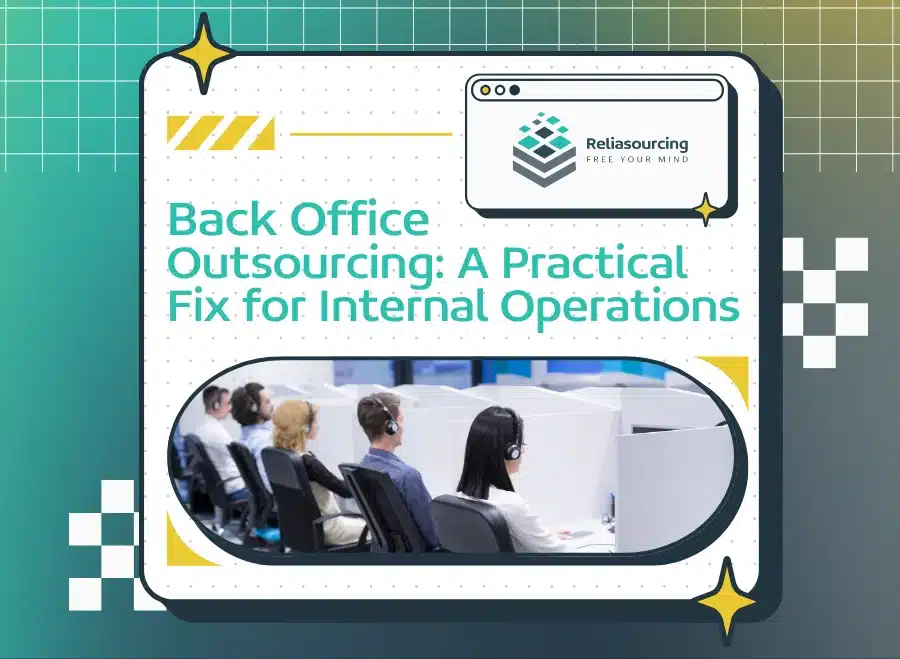The distinction between “contact center” and “call center” is more than a matter of wording—it has two distinct approaches to managing customer interactions and creating relationships. The interchangeable use of these terms can lead to confusion, as they embody unique methods, technological integrations, and service scopes.
The term “call center” refers to agents managing incoming and outbound telephone communications. This traditional model has long been compared with customer support and sales activities conducted over the phone. Meanwhile, the term “contact center” includes various communication channels like live chat, email, social media, and SMS.
The confusion often arises from the changing nature of customer engagement. Modern consumers expect seamless interactions across multiple platforms, necessitating an approach that goes beyond mere telephonic communication. Hence, the term “contact center” reflects this shift, emphasizing the need for omnichannel support and personalized engagement.
What is a Contact Center?
A contact center represents the apex of modern customer engagement, embodying a multifaceted approach to communication. Unlike traditional call centers that primarily rely on telephone interactions, contact centers embrace a variety of channels such as email, chat, social media, and mobile applications. The essence of a contact center lies in its omnichannel capabilities, catering to diverse customer preferences seamlessly.
Modern contact centers serve as strategic touchpoints for enhancing customer experience. They offer personalized interactions and proactive outreach. Additionally, they provide integrated solutions through CRM (Customer Relationship Management) systems. Acquiring advanced technologies like AI, chatbots, and analytics, contact centers elevate customer interactions to new heights of efficiency and effectiveness.
What is a Call Center?
Contrasting the expansive domain of contact centers, call centers traditionally revolve around telecommunications. They serve as focal points for handling inbound and outbound calls, addressing customer queries, processing orders, and executing telemarketing campaigns. While call centers have been foundational in customer service realms, they operate within narrower communication channels compared to contact centers.
Call centers excel in voice interactions utilizing call systems, IVR, and VoIP technologies. However, as customer expectations diversify, call centers are evolving to integrate digital channels and enhance their operational agility.
Comparing Contact Centers vs. Call Centers

The primary distinction between contact centers and call centers lies in their scope of communication channels and customer engagement strategies. Contact centers embrace a holistic approach, spanning multiple touchpoints to ensure a seamless and integrated customer journey. On the other hand, call centers primarily focus on telephonic interactions, albeit with a growing inclination towards digital integrations.
Contact centers offer flexibility, enabling businesses to adjust outreach strategies to changing customer preferences. The integration of AI-driven tools, real-time analytics, and tailored interactions distinguishes contact centers as dynamic hubs of customer-centric innovation.
How to Choose Between a Contact Center and a Call Center
The decision to opt for a contact center or a call center hinges on various factors, including the nature of your business, target audience demographics, communication preferences, scalability requirements, and budget considerations. Here are some key considerations to guide your decision-making process:
Customer Interaction Preferences
Assess the communication channels preferred by your target audience. If they exhibit a diverse range of preferences beyond voice calls, a contact center might be more suitable.
Service Complexity
Evaluate the complexity of services you intend to offer. Contact centers excel in handling multifaceted inquiries, integrating data from various sources to deliver comprehensive solutions.
Scalability and Flexibility
Consider your scalability requirements and the flexibility needed to adapt to evolving market trends. Contact centers often offer solutions with modular integrations for smooth expansion.
Technological Advancements
Factor in the technological capabilities required to enhance customer experience. Contact centers leverage AI, automation, and analytics tools for active engagement and data-driven insights.
Cost Considerations
When comparing the cost implications of setting up and operating a contact center versus a call center, it’s important to consider initial investments and maintenance costs. Additionally, evaluating ROI projections will provide further insight into the long-term financial impact of each option.
Frequently Asked Questions
What is the cost difference between a contact center and a call center?
The cost difference between contact centers and call centers depends on factors such as technology infrastructure, staffing requirements, training programs, and service scope. Contact centers, with their broader channel integrations and advanced technologies, may entail higher initial investments but can yield significant ROI through enhanced customer satisfaction and operational efficiencies.
While call centers traditionally focus on voice-based communications, contact centers embrace a broader spectrum of communication channels, including live chat, email, and social media. Understanding the differences between these two platforms is crucial for businesses seeking to optimize their customer interactions and service delivery strategies.
- Technology Infrastructure Costs: Contact centers typically require more advanced technology infrastructure to support multichannel communication, AI-driven tools, CRM integration, and analytics capabilities. This can lead to higher initial investments compared to call centers, which primarily focus on voice-based interactions. For example, implementing cloud-based contact center solutions may range from $100 to $400 per agent per month, while traditional call center setups can cost around $75 to $150 per agent per month.
- Staffing and Training Expenses: Contact centers often require specialized agents trained in handling diverse communication channels and utilizing advanced technologies. The training programs for contact center agents may incur additional costs compared to call center agents who primarily handle voice calls. On average, the hourly rate for contact center agents ranges from $10 to $25, depending on the region and expertise, whereas call center agents may have hourly rates between $8 to $20.

When should a business consider opening a contact center?
A business should consider opening a contact center when deciding on a strategic route and aiming to thrive in competitive markets. Here are three key signs indicating when a business should seriously consider establishing a contact center:
- Increasing Customer Interaction Complexity
As your business expands and diversifies its products or services, the complexity of customer inquiries and support requests is likely to escalate. If you find that your existing customer service channels, such as email or phone support, struggle to handle multifaceted queries or provide real-time solutions, it’s a clear indicator that transitioning to a contact center model is essential. Contact centers are equipped with omnichannel capabilities, AI-driven tools, and integrated CRM systems that enable seamless management of diverse customer interactions, regardless of complexity. - Growing Demand for Omnichannel Engagement
In an era where customers expect seamless experiences across various touchpoints, including social media, chat, email, and mobile apps, relying solely on traditional communication channels like phone calls or emails may limit your ability to meet evolving customer expectations. If you notice a significant shift in customer preferences towards digital interactions and a demand for personalized, proactive engagement across multiple channels, it’s a compelling reason to invest in a contact center. You can ensure consistent, tailored interactions that enhance customer satisfaction and loyalty by embracing an omnichannel approach. - Need for Data-Driven Insights and Analytics
Modern businesses thrive on data-driven decision-making, and customer interactions are a goldmine of valuable insights. If your business lacks robust analytics capabilities to track customer interactions, identify trends, predict behavior, and optimize service delivery, it’s a clear signal that a contact center with integrated analytics tools is imperative. Contact centers leverage advanced analytics, AI-powered algorithms, and real-time reporting to extract actionable insights, improve operational efficiencies, and drive continuous improvement in customer service strategies.
How Do You Switch from a Call Center to a Contact Center?

Transitioning from a call center to a contact center involves a strategic approach encompassing technology upgrades, workforce training, process optimizations, and integration with CRM and digital communication platforms. Collaborating with experienced outsourcing partners like Reliasourcing can streamline this transition by providing expertise, scalable solutions, and seamless integration support. Here are some mindful tips to consider:
- Technology Integration and Upgrades: Begin by evaluating your current technology infrastructure and identifying areas that need improvement or upgrades. Implementing advanced communication tools, such as omnichannel platforms and AI-powered chatbots, can enhance customer interactions and streamline contact center operations.
- Workforce Training and Development: Invest in comprehensive training programs to equip your agents with the skills needed for contact center operations, including active listening, empathy, and effective problem-solving. Incorporate ongoing coaching and feedback mechanisms to ensure continuous improvement and adaptation to evolving customer needs.
How Reliasourcing Helps with Contact Center Outsourcing?
At Reliasourcing, we specialize in empowering businesses with cutting-edge contact center solutions tailored to their unique requirements. Our comprehensive suite of services encompasses:
- Omnichannel Engagement: We leverage diverse communication channels to ensure seamless customer interactions across voice, chat, email, social media, and mobile platforms.
- AI-Driven Insights: Our AI-powered analytics tools provide actionable insights, predictive modeling, and real-time data analytics for informed decision-making and performance optimization.
- Scalable Solutions: We offer scalable contact center solutions with modular integrations, flexible staffing models, and customized workflows to adapt to evolving business needs.
- CRM Integration: Our expertise in CRM integration enhances customer data management, facilitates personalized interactions, and fosters long-term customer relationships.
- Training and Development: We prioritize workforce training, skill development, and ongoing coaching programs to ensure high-quality customer service delivery and employee satisfaction.
Partnering with Reliasourcing not only streamlines your contact center operations but also unlocks a realm of opportunities for enhancing customer experience, driving operational efficiencies, and achieving sustainable growth.
The evolution from traditional call centers to modern contact centers signifies a paradigm shift towards omnichannel engagement, personalized interactions, and AI-driven innovations. Understanding the nuances between contact centers and call centers is pivotal for businesses aiming to optimize their outsourcing strategies and elevate customer experience.
Reliasourcing stands as your strategic partner in navigating this transformative journey, offering tailored contact center solutions, technological expertise, and industry-leading practices to drive success in the digital era of customer service.
Ready to elevate your customer experience? Partner with Reliasourcing today and unlock the potential of modern contact center solutions!
Contact our experts for a personalized consultation and discover the power of seamless customer engagement.









